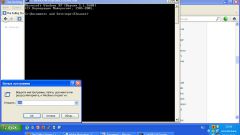Instruction
1
What is the IP? IP address is your unique address on the Internet. No one else on the planet does not. This "set of numbers" belongs to you only during the current connection. When you connect next time, you very likely will have a different IP address. How does it work? Your provider has a specific set of available IP addresses. He takes them in rent, of course, not free. When you dial up to an ISP, a network connection, you are assigned one of the available IP addresses. And the farther you travel with it across the network. Such IP addresses are called dynamic.
2
There are static IP addresses: you will always have the same address in the network, they are paid and the ordinary user does not need. And if that is so with each person that can be recognized by IP? For IPaddress, you can with a 100% guarantee to know who owns the range of IP addresses, i.e., the provider who issued the IP address for temporary use.
3
On the provider's server statistics, what are the Internet addresses is one or the other user which packages the information it receives and from what sites, what and where to send. This is called traffic analysis. Did you ever notice that when you go to websites like "mile.<url> or Yandex.<url>", then the main page shows the weather in your city. How do they know you from that city? Solely on your IPaddress. They know who your provider is. That's enough.
4
Anything anybody else learn you can. Why? Yes, because only the provider owns the information who and at what point was assigned a particular IP address. Disclosing these details, the provider violates the law on the protection of privacy, which is punishable by law. Of course, any system is vulnerable. You can hack a provider's server and receive data. But note that you support the server and monitor its security is not "blonde jokes", but a serious and competent people. And they work their know. Besides, the breach is a criminal offence.
5
So anyone can see who is left in the network under different IP address? Yes, it can. According to the code of Criminal procedure article 21 part 4 "Requirements, instructions and requests of the Prosecutor, the head of the investigative body, investigator, body of inquiry and of the inquirer, presented within the limits of their powers established by the present Code, obligatory for execution by all institutions, enterprises, organizations, officials and citizens." And if so, exactly those which are stated in this article, the request form and simply write: "On the basis of article 21 of part 4 of the criminal procedure code, please provide the necessary information...". And that's all.
6
Mobile operators reglamentary its activities article 64 of FZ "On telecommunications": "telecommunications Operators are obliged to provide the authorized state bodies engaged in investigative activities or provision of security of the Russian Federation, information about the users of communication services and its communication services, as well as other information required to carry out the bodies of the targets in the cases established by Federal laws."
7
Any provider very quickly provides all the available information. In addition, the Federal law "About operatively–search activity" in the edition of 2008. According to Chapter 2, article 6 p. 10-11 and anything below in the notes: in a nutshell, the state security and law enforcement agencies can make anybody put on a wire and removing of information transmitted through channels of technical communication (Internet), only on the basis of suspicion. And it's even more than to learn about where to find someone via IPaddress.


